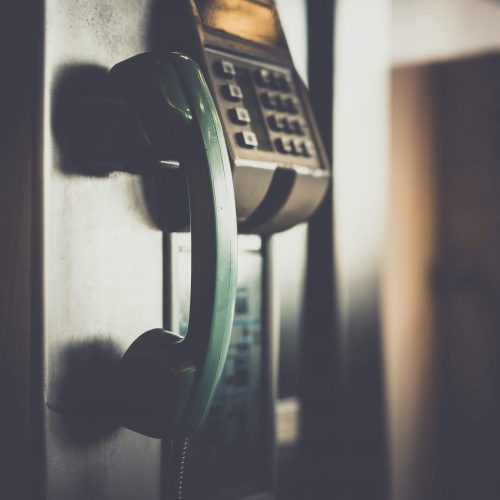Post Traumatic Stress Disorder (PTSD) Helpline Number for Teens and Adolescents in Dallas, Texas
At BasePoint Academy’s treatment centers in Arlington, Forney, and McKinney, Texas, we possess the empathy, experience, and specialized expertise to address teens’ mental health issues, including Post Traumatic Stress Disorder (PTSD). Among children and teens who have experienced trauma, 3% to 15% of girls and 1% to 6% of boys go on to develop PTSD.
In addition to PTSD, we also treat conditions, such as mood disorders, trauma, anxiety, ADHD, OCD, bipolar disorder, and self-harm, with the necessary clinical know-how. On this page, learn more about our PTSD mental health hotline in Texas and other valuable resources for addressing the flashbacks, nightmares, and negative thoughts and beliefs often associated with PTSD—call us below to schedule your child’s free PTSD assessment or fill out our convenient contact form.
What is a Teen Mental Health Hotline?
A teen mental health hotline is a confidential resource where teenagers can speak with trained professionals about their emotional and mental health concerns. These emotional well-being hotlines provide support for issues like depression, anxiety, PTSD, and suicidal thoughts. They offer immediate emotional help and guidance, ensuring teens never feel alone during challenging times.
Whether your child is struggling with overwhelming feelings of anxiety, Complex Post Traumatic Stress Disorder (CPTSD), or the heavy burden of depression, reaching out to a mental health hotline can be a crucial first step in getting help. Trained professionals are there to listen, provide coping strategies, and connect you with further resources or mental health treatment options. If your teen is experiencing symptoms of trauma or stress, reaching out to a PTSD helpline can provide immediate, confidential support and guidance.
BasePoint Accepts Insurance for Teen PTSD
Our complimentary assessment with a licensed clinician will provide you with a recommendation for the appropriate level of care for your teen struggling with PTSD. We can also check your insurance coverage levels.
Call us today to schedule a complimentary same-day assessment at (972) 357-1749 or complete our inquiry form.
Teen PTSD Therapy & Treatment Admissions form
Why are Texas Hotlines Beneficial?
Texas hotlines are beneficial because they offer immediate, confidential mental health support. Whether an individual is dealing with anxiety, depression, PTSD, or related, these hotlines connect callers with trained professionals who can provide psychological distress support, guidance, resources, and a compassionate ear.
These hotlines are especially valuable for those experiencing severe emotional distress, such as suicidal thoughts or panic attacks. In a state as large and diverse as Texas, having access to local mental health crisis intervention means getting support tailored to the specific needs of your community. Whether in a rural area or a bustling city, these services ensure that help is always within reach, offering immediate assistance and connections to long-term care. If you or a loved one is struggling with trauma-related symptoms, don’t hesitate to call a PTSD hotline in Texas for immediate, compassionate support.
Contact BasePoint Academy Today
Contact us today to schedule a free confidential assessment for your teen with a licensed clinician.
You can also get in touch to talk with our mental health experts about treatment needs, care options and your insurance coverage levels.
Call: (972) 357-1749Check Your InsuranceUnderstanding PTSD in My Teen and Adolescent Child
Understanding PTSD in your teen or adolescent child is crucial for their emotional well-being. PTSD, or Post Traumatic Stress Disorder, can cause severe psychological distress, affecting your child’s daily life and interactions. Symptoms might include intense anxiety, flashbacks, and emotional numbness, making it challenging for them to navigate school, friendships, and family life.
Supporting your child through this challenging time involves recognizing these symptoms and helping them develop coping strategies for PTSD. Encourage open communication and seek professional PTSD treatment. Early intervention is critical to helping your child regain a sense of safety and control.
What Does Post Traumatic Stress Disorder Look Like in My Child or Teen?
Post Traumatic Stress Disorder (PTSD) in your child or teen may manifest as intense anxiety, frequent nightmares, or sudden emotional outbursts. They might avoid places, people, or activities that remind them of the trauma. Additionally, they may seem detached, struggle with concentration, or exhibit sleep patterns and mood changes.
PTSD can also lead to other mental health challenges, such as depression, panic attacks, or even substance abuse, as they attempt to cope with the emotional and psychological distress. It’s important to recognize these signs early and seek professional help. A mental health specialist can provide a proper diagnosis and develop a treatment plan to help your child manage their symptoms and regain a sense of normalcy.

What Is a PTSD Hotline Number for Teen Mental Health Crises?
A mental health PTSD disorder crisis helpline number for teenagers is a vital resource offering immediate support for those struggling with trauma-related issues. Whether it’s a behavioral health helpline or a trauma support hotline, these services provide access to trained professionals who can assist with PTSD, anxiety, depression, and other psychological emergencies.
If your teen is facing severe psychological distress, such as panic attacks, suicidal thoughts, or overwhelming fear, reaching out to a mental health emergency line can be vital. These talk therapy helplines connect your child with compassionate experts who can offer immediate guidance, help them manage their symptoms, and provide referrals for ongoing talk therapy or other necessary treatments. If your child is experiencing trauma-related symptoms, calling a PTSD hotline number can be a critical first step toward safety, stability, and long-term healing.
What Support is Available for PTSD Disorder in Texas?
In Texas, a variety of support options are available for those dealing with PTSD, including Cognitive Behavioral Therapy (CBT) and Eye Movement Desensitization and Reprocessing (EMDR). These therapies are effective in addressing the intense anxiety, depression, and panic attacks that often accompany PTSD. Additionally, supportive counseling and PTSD medications can help manage symptoms and improve emotional stability.
Beyond traditional therapies, holistic approaches to PTSD, such as mindfulness practices and integrative treatments, are also widely available in the Lone Star State. These methods focus on healing the mind and body, offering a more comprehensive approach to recovery. Whether your child is dealing with acute stress disorder, CPTSD, adjustment disorder, co-occurring disorders, or related, these resources can provide the support needed for long-term healing and well-being. Call (972) 357-1749 to schedule your child’s free PTSD screening to determine the most suitable support.
Are There Hotlines for PTSD Specifically for Teens in Dallas-Fort Worth?
Yes, there are specific hotlines for adolescents with PTSD in the Dallas-Fort Worth area, including BasePoint Academy’s PTSD hotline in Texas. These emotional support lines provide targeted support for teens dealing with trauma-related disorders, such as acute stress disorder (ASD). Such services offer psychiatric emergency response, addressing issues like severe anxiety, depression, and panic attacks.
Parents and guardians are also encouraged to call Texas State PTSD mental health crisis hotlines. If you’re concerned about your child’s well-being, call our team today. The professionals at BasePoint Academy understand the unique challenges of adolescence and can offer immediate assistance, coping strategies, and referrals for further care. Access to these resources ensures that you and your teen receive crisis counseling services when needed most.
Are Mental Health PTSD Helplines Free, Confidential, and Private?
Yes, mental health PTSD helplines are typically free, confidential, and private. A free PTSD mental health hotline in Texas ensures that you can access help without any cost. These services maintain strict confidentiality, providing a safe space for discussing issues such as severe anxiety, depression, and trauma-related stress.
When you or your child reach out to a confidential PTSD mental health hotline in Texas, your privacy is protected. These helplines offer a secure environment where you can talk openly about your challenges, whether it’s managing panic attacks or coping with traumatic experiences, knowing that your information will remain private.
Does My Teen and Adolescent Child Need Suicidal Tendencies to Call a Dallas Hotline Number?
No, your teen or adolescent child does not need to have suicidal tendencies to call a Dallas hotline number. A suicide prevention hotline can be a valuable resource even if your child is dealing with other issues like severe anxiety, depression, or PTSD. These helplines provide mental health crisis response for various concerns, not just imminent risks.
If your child is struggling with overwhelming stress, panic attacks, or emotional distress, reaching out to a Dallas mental health hotline can offer immediate emotional help and guidance. These services are designed to help with various psychiatric challenges and can connect your child with the appropriate resources to address their needs effectively. For trauma-related concerns, calling a PTSD hotline can also offer specialized support tailored to your teen’s emotional and mental health needs.

How Can I Talk to Someone About My Child’s PTSD For Free?
To talk to someone about your child’s PTSD for free, you can call a free PTSD mental health hotline in Texas, such as BasePoint Academy. This immediate and confidential mental health support can provide guidance on managing symptoms like severe anxiety, depression, and trauma-related stress. Our professionals can assess your child’s needs and recommend appropriate resources.
If you want personalized support, call (972) 357-1749 today. Our team can discuss your child’s situation seven days a week, from 7 am to 7 pm Central Standard Time (CST). Don’t hesitate to reach out to explore treatment options—getting professional advice can make a significant difference in your child’s path to recovery.

What Hours Are PTSD Hotline Numbers Open in Dallas?
Many PTSD mental health hotlines in Dallas, Texas, typically provide 24/7 mental health assistance. Whether your child is facing a mental health crisis late at night, early in the morning, or somewhere in between, help is a simple phone call away.
Adolescent and Teen PTSD Disorder Hotline at BasePoint Open 7 am to 7 pm CST
At BasePoint Academy, we understand that mental health crises don’t always occur when convenient, which is why our professionals are available seven days a week from 7 am to 7 pm Central Standard Time (CST). You or your child can call (972) 357-1749 to speak to a professional who specializes in trauma-informed care and understand how PTSD affects the youth.
Teen PTSD Phone Lines Open 24 Hours a Day, 7 Days a Week
Some PTSD hotlines in Texas, such as Dallas Metrocare Services, provide 24/7 mental health assistance. These, along with other national and Texas State PTSD mental health crisis hotlines, offer essential 24/7 support. Access to emotional crisis intervention services at any hour can be crucial in managing urgent situations and finding immediate assistance.
Calling during the day might offer more options and resources. However, don’t hesitate to reach out to a PTSD mental health hotline at any time for immediate support.
Male PTSD Hotlines for Teens
If you’re looking for support for a teenage male dealing with PTSD, there are specialized hotlines available that offer tailored assistance. These mental health hotlines provide a safe space for teens to talk openly about their experiences and receive guidance from professionals who understand the unique challenges faced by young males with PTSD.
Encourage your teen to call these hotlines to discuss their issues, whether during a crisis or for ongoing support. These services are designed to offer immediate emotional help and connect them with additional resources and treatment options to address their specific needs.
Female PTSD Helplines for Adolescents
For adolescent girls experiencing Post Traumatic Stress Disorder (PTSD), there are dedicated helplines that offer specialized support. PTSD tends to be more prevalent in girls than boys, making these resources particularly important. These helplines provide a confidential space for young females to discuss their experiences and receive support tailored to their needs.
Encourage your daughter to reach out to these PTSD helplines whenever she needs to. These services are available to offer immediate assistance and connect her with resources and professional help to manage her symptoms effectively.
Contact BasePoint Academy Today
Contact us today to schedule a free confidential assessment for your teen with a licensed clinician.
You can also get in touch to talk with our mental health experts about treatment needs, care options and your insurance coverage levels.
Call: (972) 357-1749Check Your InsuranceWhat Questions Might I Be Asked If I Call a Confidential PTSD Helpline for my Teenage Child?
When you call a confidential PTSD helpline for your teenage child, you may be asked a series of questions designed to understand their situation and provide appropriate support. These questions help the professionals gauge the severity of the issue and determine the best course of action for your child’s well-being.
While the questions may differ from one helpline to the next, it’s essential to be prepared to discuss various aspects of your child’s mental health and experiences. Below are a few examples of some questions that you might be asked when contacting a confidential PTSD mental health hotline in Texas.
- What specific events or experiences is your child struggling with?
Identifies the trauma and its impact on your child’s mental health - What symptoms or behaviors have you observed in your child?
Assesses the severity of their PTSD symptoms, such as anxiety, flashbacks, nightmares, or negative thoughts and beliefs - Has your child received any previous mental health treatment or therapy?
Reveals their treatment history and what approaches have been tried - Are there any immediate concerns for your child’s safety, such as suicidal thoughts?
Determines if there is an urgent need for crisis intervention or additional resources - What support systems or resources does your child currently have access to?
Evaluates the existing support network and identify gaps in their care - What coping mechanisms (healthy or unhealthy) has your child engaged in?
Determines if there are any behaviors, such as substance use, that could exacerbate PTSD symptoms
Recommended Texas Hotline Numbers for Teen PTSD Therapy and Support?
Specialized Texas mental health hotlines offer support and guidance for teens managing PTSD and other conditions. These resources provide tailored advice and support to address your child’s challenges. Whether your child needs immediate mental health crisis intervention or long-term strategies, the following recommended helplines supply professional assistance to meet those needs.

BasePoint Academy
- Phone: (972) 357-1749
- Website: https://basepointacademy.com/free-assessment/
Youth and Family Counseling
- Contact: 972-724-2005.
- Website: https://counselingforall.org/
North Texas Behavioral Health Authority (NTBHA)
- Contact: 24/7 crisis hotline at 866-260-8000
- Website: https://ntbha.org/
Dallas Metrocare Services
- Contact: 24/7 crisis helpline at 214-743-1200
- Website: https://www.metrocareservices.org/
Mental Health America of Greater Dallas
- Contact: 214-871-2420
- Website: https://mhadallas.org/
Effective Teen PTSD Management With BasePoint Academy
We can help your teen and your family address and overcome mental health concerns with expert care and a safe environment. Call today to discover the treatment for long-term healing.
Teen Mental Health Hotline Guide
Adolescent and Teenage PTSD Statistics in the Lone Star State
- By late adolescence, approximately two-thirds of youth have been exposed to trauma, with many subsequently developing Post Traumatic Stress Disorder (PTSD). By age 18, 8% of these traumatized youth meet the criteria for a PTSD diagnosis, with rates increasing to as high as 40% in cases involving sexual abuse and assault.
- Among 1,000 depressed and suicidal youth in Texas, two-thirds had experienced trauma at some point in their lives, underscoring the importance of early intervention.
- Around 90% of children and youth in Texas foster care have experienced trauma.
- In 2013, the Texas Legislature enacted Senate Bill 1356, mandating that juvenile justice practitioners—including probation officers (JPOs), supervision officers, correctional officers, and parole officers—receive training in trauma-informed care.
- According to the Meadows Mental Health Policy Institute in Texas, untreated PTSD can result in long-term issues that persist into adulthood, such as depression, increased suicide risk, substance abuse, relationship difficulties, and violent behavior. Many of society’s most serious challenges, including sex trafficking, domestic violence, community violence, and mass shootings, are rooted in unresolved childhood trauma.






